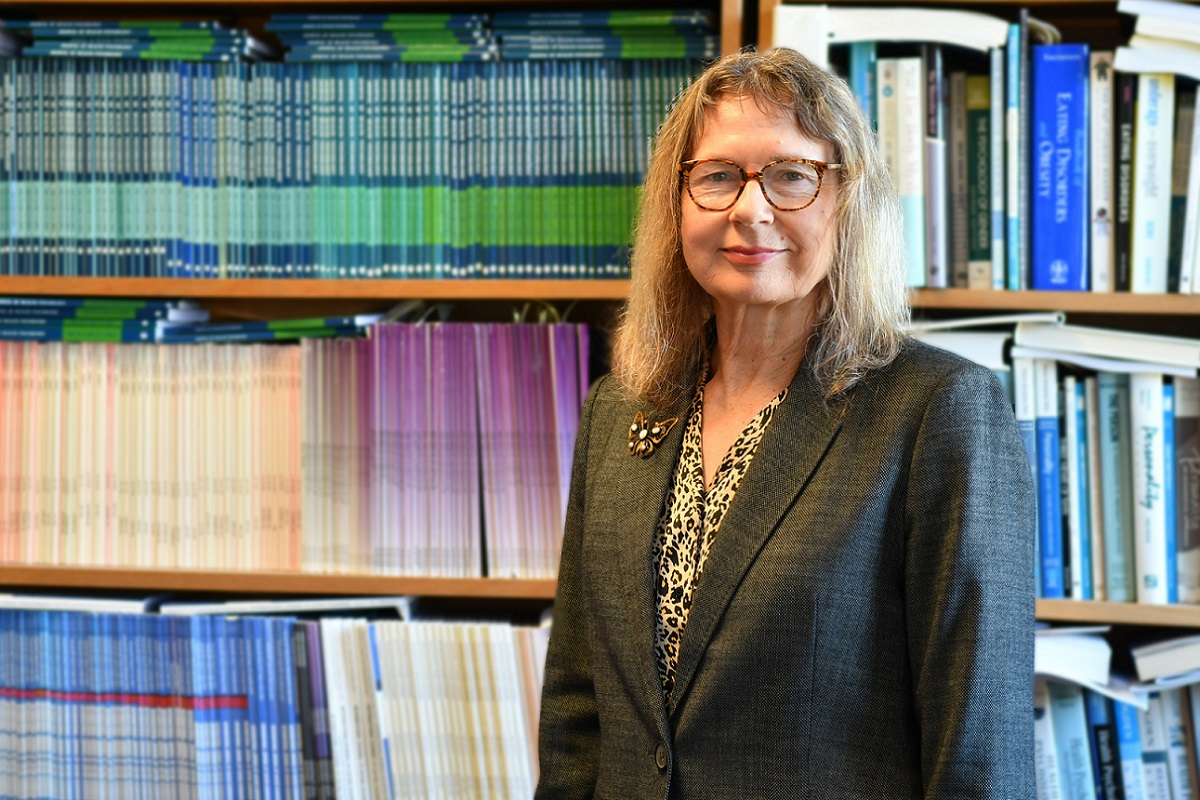
Matthew Flinders Distinguished Professor in Psychology Marika Tiggemann was recently recognised as Australia’s research leader in gender studies. One of the nation’s most highly published and cited psychology researchers, she has also notched up 39 years at Flinders while informing body image policy around the globe.
What area does your research focus on?
My research centres around the area of body image. Topics include the role of media, body image across the lifespan, positive body image, and the premature sexualization of girls.
When I first began researching body image in the early 90s, people would often ask me ‘what’s that?’ followed by a quizzical look and then ‘why would anyone want to study that?’ Well, how that has changed! Body image has become recognised as a major societal problem and the term itself has become part of the contemporary lexicon. I guess I have been witness to that process.
What does your current work involve?
My current work focuses on the role of social media in contributing to body image concerns.
People used to think that because the content on social media is largely peer-generated, it would present a greater diversity in body sizes, shapes and appearance than traditional media formats like fashion magazines, and hence should be beneficial in normalising ‘normal’ appearances.
However, a casual scroll through a platform like Instagram reveals a world seemingly inhabited by people who, unlike the viewer, have near-perfect bodies, near-perfect relationships, and near-perfect lives. This comes about because attractive people amass a large number of followers, but also because individuals only post their ‘best’ photos, ones in which they look good or are doing something noteworthy.
Certainly many women and girls report spending huge amounts of time and effort in taking and selecting their photos, which can then be further enhanced with filters or digitally altered. They also report being incredibly invested in the number of ‘likes’ they receive.
My work (both correlational and experimental) has been part of the growing recognition of the negative effects of social media on body image. At the same time, I am exploring ways that social media might be used positively. In particular, I have been investigating aspects of the wider #bodypositive online movement, such as the posting of ‘Instagram versus reality’ images.
Can you describe one of your significant findings and its impact?
In an effort to ameliorate detrimental media effects on body image, a number of organisations and countries (including Australia) have suggested that fashion magazine or advertising images that have been digitally altered should be required to include a disclaimer along the lines of ‘This image has been digitally altered to enhance appearance’.
Despite the appeal of this suggestion, my recently completed ARC grant provided evidence that such disclaimers simply do not work. Indeed, some forms of disclaimer (e.g. ‘This image has been digitally altered to lengthen and slim legs’) have been found to make matters worse.
In a series of eye-tracking studies we showed that such disclaimers direct visual attention toward the very body part(s) mentioned and lead women to engage in more comparison with the model’s body than they normally would.
These findings caused the withdrawal of draft legislation mandating disclaimers (Media and Public Health Act) in New York, and replacement in favour of the NYC Girls Project showcasing a diversity of young girls with the slogan ‘I’m beautiful the way I am’.
The findings were also instrumental in changing the eventual French legislation enacted in 2017 to be entirely generic (‘photographie retouchée’), rather than the more elaborate disclaimer originally tabled.
What has been one of your proudest moments?
I guess I am most proud of the work of my PhD students. But one experience I really valued was being a Living Book in the 2008 Festival of Arts. This gave me an opportunity to talk to a number of Adelaideans from different walks of life (as well as providing me with an Artist Pass!).
Another was appearing in Taryn Brumfitt’s feature length documentary Embrace which received a national release through Palace/Nova and Hoyts cinemas. This enabled my work and views on parenting and children’s body image to gain far more reach than it normally would.
I was also really stoked to be named in very illustrious company as a woman leader in science, technology, maths and engineering in Kaz Cooke’s (2016) Girl Stuff for girls aged 8-12 (Penguin).
What do you enjoy outside of work?
I enjoy doing physical exercise of most sorts, but in particular walking in both natural and urban environments. I also really like theatre, film, contemporary fiction, travel, coffee shops, good food, sudoku and cross word puzzles.
Along the way, I have learnt bits of a number of different languages and for my next career I plan to teach English as a second language.

